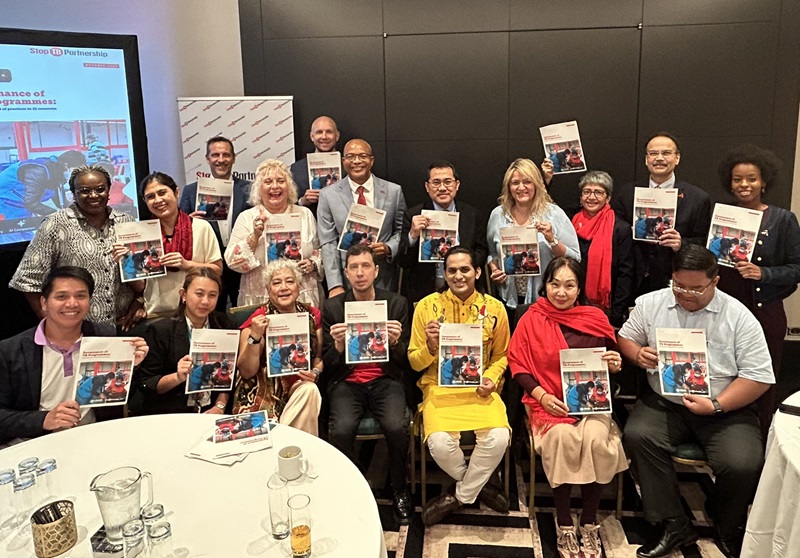USAID and Stop TB Partnership Launch a New Report on Governance of TB Programmes
25 September 2024
NEW YORK, 25 September 2024: On the third day of the high-level week of the United Nations General Assembly (UNGA), the United States Agency for International Development (USAID) and the Stop TB Partnership launched a new report titled “Governance of TB Programmes: Third Assessment of Practices in 21 countries”.
This is a first-of-its-kind assessment of the governance of tuberculosis (TB) responses on four themes of transparency, inclusiveness, legal framework, and process efficiency and effectiveness of national TB responses. The assessment enables countries to understand their status on each of the 20 governance benchmarks, prioritize activities and track their progress.
The four focus areas for this report are as follows:
- Transparency – A working National TB Programme (NTP) website, case notification data on the website, latest TB technical guidelines on website, National Strategic Plan (NSP) and annual budget on the website and an external programme review.
- Inclusiveness – Social contracting with government funds, inclusion of key populations in NSP, inclusion of civil society/ TB survivors, inclusion of TB community and subnational entities, and gender inclusiveness.
- Legal framework– Mandatory TB notification, Drug-Resistant TB (DR-TB) medicines in the national Essential Medicine List and available free of cost, social protection measures in place, law/policy on human rights for TB, and policy framework to reduce TB stigma.
- Process efficiency and effectiveness of national TB responses – Approval process efficiency, NTP manager empowerment, capacity of NTP, ability to adopt/adapt international guidelines, and NTP’s capacity for fund absorption.
This report is an important advocacy tool for National TB Programmes (NTPs) and civil society partners for improved governance at the national level. It can be used for tracking progress over the years as a “Governance report card”.
Using this report, in-country stakeholders can, in consultation, make action plans with clear timelines, responsible entities, and reallocation of available resources. Countries can focus on “easy wins” to improve their scores in the next round, and detailed recommendations for countries are also included in the country profiles.
21 countries, together accounting for 73% of the global TB burden, were covered in the report. These countries are Bangladesh, Cambodia, Democratic Republic of the Congo, Ethiopia, India, Indonesia, Kenya, Kyrgyzstan, Mozambique, Nigeria, Pakistan, Philippines, South Africa, Tajikistan, Uganda, Ukraine, United Republic of Tanzania, Uzbekistan, Viet Nam, Zambia and Zimbabwe participated in the development of the report. The NTPs and the civil society stakeholders in each participating country contributed to the data collection and development of the report.
“This initiative is unique in the way it looks at improving governance of country TB responses as one of the tools to improve the impact of intervention and to accelerate progress towards ending TB. It has set up a new best practice approach in TB that could be used for other large public health programs”, said Lucica Ditiu, Executive Director of Stop TB Partnership.
Through various funding mechanisms, the Stop TB Partnership is supporting a strong delegation of over 20 civil society partners. During the UNHLM on AMR, they will ensure that the voices of the TB and DR-TB communities and survivors are heard, and they will share a clear and strong message with member states that to tackle AMR, the world needs to end TB.
Source: Stop TB Partnership

